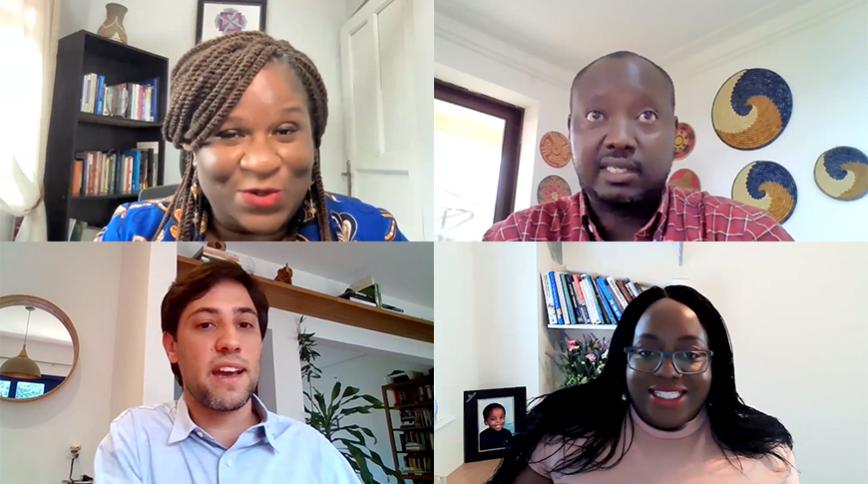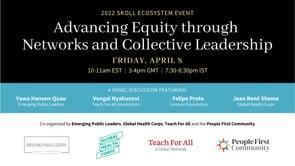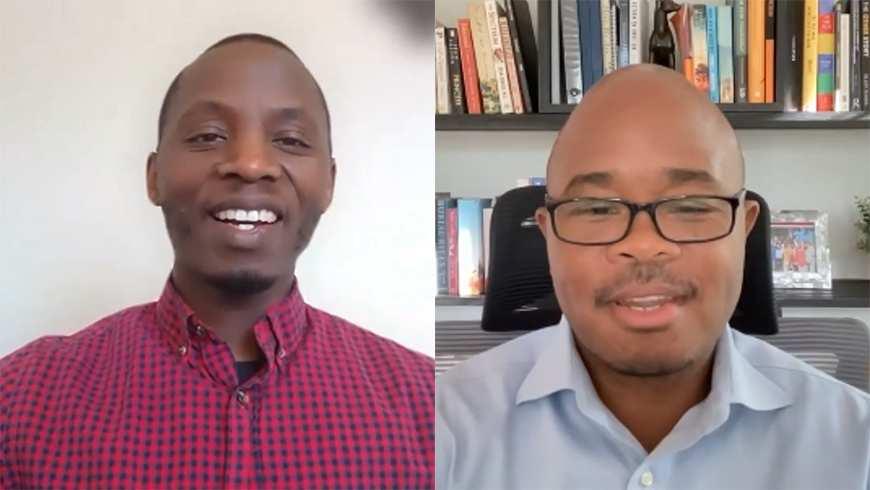Teach For All Contributes to People First Community Conversations on the Exponential Impact of Collective Leadership Development

This month, Teach For All joined members of the People First Community—a globally diverse group of practitioners, academics, and public and private sector actors with a shared belief in the importance of prioritizing investing in collective leadership development as a path for sustainable development—in multiple events highlighting the voices and experiences of proximate leaders from diverse sectors and illustrating the exponential impact of leadership development programs, which have historically been overlooked by the international development community.
On April 8, People First Community members African Leadership Academy, Emerging Public Leaders, Global Health Corps, and Teach For All co-hosted two Global Ecosystem Events as part of this year’s Skoll World Forum. The first event, Advancing Equity Through Networks and Collective Leadership, was moderated by Vongai Nyahunzvi, Teach For All’s Chief Network Officer and Head of Region - Africa, with speakers Yawa Hansen-Quao, Executive Director of Emerging Public Leaders; Felipe Proto, Director at the Lemann Foundation; and Jean René Shema, Director of Strategic Partnerships & Rwanda Country Director, Global Health Corps. The panel explored how collective leadership is cultivated and how greater investments in this networked approach to leadership development can advance our shared vision for a more sustainable and equitable world. “This intervention isn’t just about the here and now; it’s about nurturing a new generation of ethical and competent leaders that carry the heart of public service with them, explained Yawa Hansen-Quao.
The second event, Learning from the past to move forward: Systems don’t have agency, people do, moderated by Mark Dybul, CEO of Enochian Biosciences and former Co-Director of the Center for Global Health Practice and Impact, and featuring speakers Cornelia Kruah-Togba, former Special Assistant to the Minister of Education and African Leadership Academy and Emerging Public Leader alumna; Lorraine Kabunga, Associate Director with the Clinton Health Access Initiative in Uganda and Global Health Corps alumna; and Khadija Bakhtiar, CEO & Founder of Teach For Pakistan, highlighted how proximate leaders exercised their agency and mobilized their communities in moments of crisis to build forward better and address system gaps. The conversation offered reflections on how to strengthen health and education systems for pandemic preparedness and insights into how leadership development functions as a transformative lever for sustainable development. “If we were to empower teachers and say ‘Yes, you are the leader we need right now, be that pillar of strength for your community today. What do you need? We’re here behind you.’ If we did that as an actual policy, I wonder what would happen.” posed Khadija Bakhtiar.





